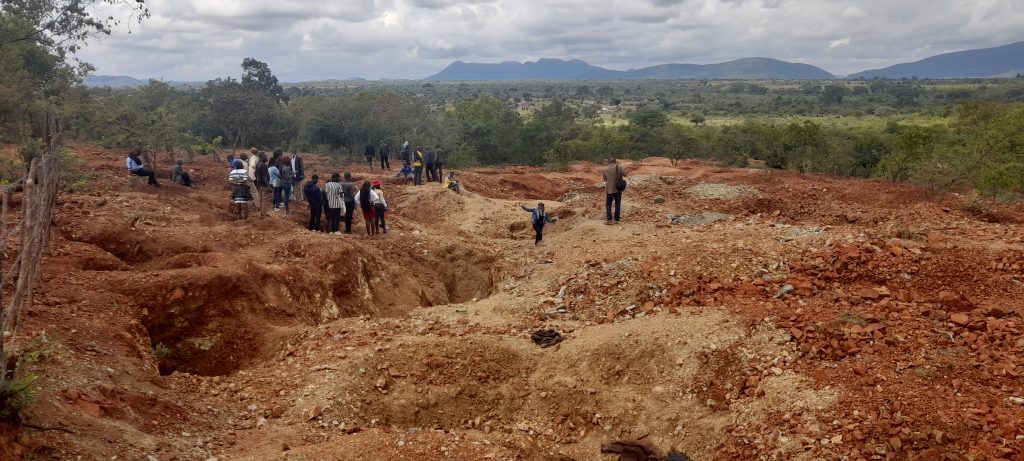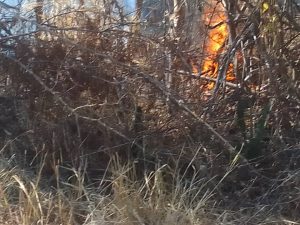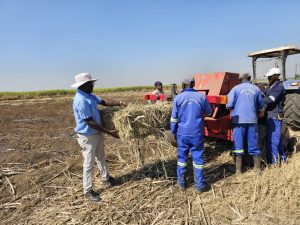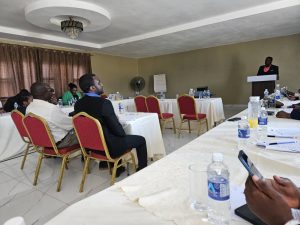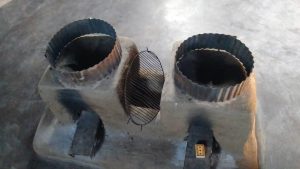… only gaping holes left as politically-connected syndicates loot away all gold
Upenyu Chaota
What should have been a breakthrough for the Hwendedzo community after the discovery of gold deposits at the foot of a local hill over a year ago has turned out to be a nightmare after villagers lost out to politically-connected syndicates who left behind deep shafts and pits which threaten the environment.
Community members say they suspect that the syndicates of illegal miners made hundreds of thousands of dollars from the hill before deposits got depleted.
Political muscle was flexed and the powerless locals could only watch from a distance as truckloads of gold ore made their way out of the hill outcrop.
By then, riot police had been deployed to clear the area of ordinary panners and cordon off the hill.
Village head Sayina Chinomwe told journalists during a media tour organised by the Zimbabwe Union of Journalists (ZUJ) recently that the gold rush left them poorer, with locals having nothing to show for it.
“We did not know that this hill sits on top of rich gold deposits. We were surprised to see a lot of people from faraway places coming to dig, and we could not tell where they were from.
“We thought the mining would help develop our community through jobs and our own opportunity to participate in the mining, but that was not to be. They were too powerful for us and they had their way,” said the elderly Chinomwe.
He said the police came and set base at the site and cordoned off the area allowing only their syndicates to mine.
Locals said the Zanu PF Masvingo provincial leadership led by then chairperson Ezra Chadzamira, in partnership with local police and army bosses, took over all the mining activities.
War veterans and some members of President Emmerson Mnangagwa’s family are said to be among those that exploited the mineral deposits before leaving behind a big environmental problem.
Zimbabwe Environmental Lawyers Association (Zela) programmes manager Nobuhle Mabhikwa said gold rushes in the country mainly benefit outsiders with locals left to deal with degraded land.
“Whenever there is a gold rush, besides the benefit of money that many people celebrate, it usually leaves behind a trail of destruction. Mostly the people from the area where the gold will have been discovered do no benefit anything.
“This speaks to our laws and policies. Communities and other resource rich areas must benefit from their resources,” said Mabhikwa.
She said the poor communities end up losing their livestock as a result of the abandoned shaft and pits.
“It is very disturbing to find the amount of land that will be degraded by the mining activities and the number of livestock the villagers lose as a result of the open shafts.
“We have heard of cases where people have fallen in those pits and get injured and in some cases fatalities are recorded.
“The communities and other stakeholders must come together to reclaim the degraded land and use it for other purposes,” said Mabhikwa.
Hwendedzo is about 30 kilometres North East of Masvingo city off Mutare road along Nerupiri Road.
Centre for Natural Resource Governance (CNRG) director Farai Maguwu blamed what he called the politicisation and securitisation of the mining sector as responsible for marginalising local communities.
“We now have a big crisis of politicisation and securitisation of minerals and natural resources in general. Whenever a mineral is discovered it is quickly captured either by members of the ruling party or security sector. In the long run this makes a country highly unstable and ungovernable,” said Maguwu.
Environmental Management Agency (Ema) Masvingo provincial environmental education and publicity officer Brian Makani said villagers should jointly apply and register mining claims so as to safeguard their interests.
“Villagers should jointly apply for mining rights and apply for Environmental Impact Assessment (EIA) certificates so that they can participate in sustainable explotation of mineral resources in their own communities,” said Makani.
Flora and Fauna Zimbabwe (FaFloZim) director Fidelicy Nyamukondiwa said they were mobilising a team of volunteers to reclaim the degraded land and plant trees.
“We have tried to engage the villagers in view of convincing them to fill up the pits and tunnels. Their morale is down.
“The FaFloZim team of volunteers is willing and ready to work with the villagers. We are currently mobilising resources to help rehabilitate the area. The open pits must be filled and trees should be planted during the tree planting season.
“The local councillor Stephen Munyenyiwa is supportive and has pledged to help mobilise youths to rehabilitate the area,” said Nyamukondiwa.

